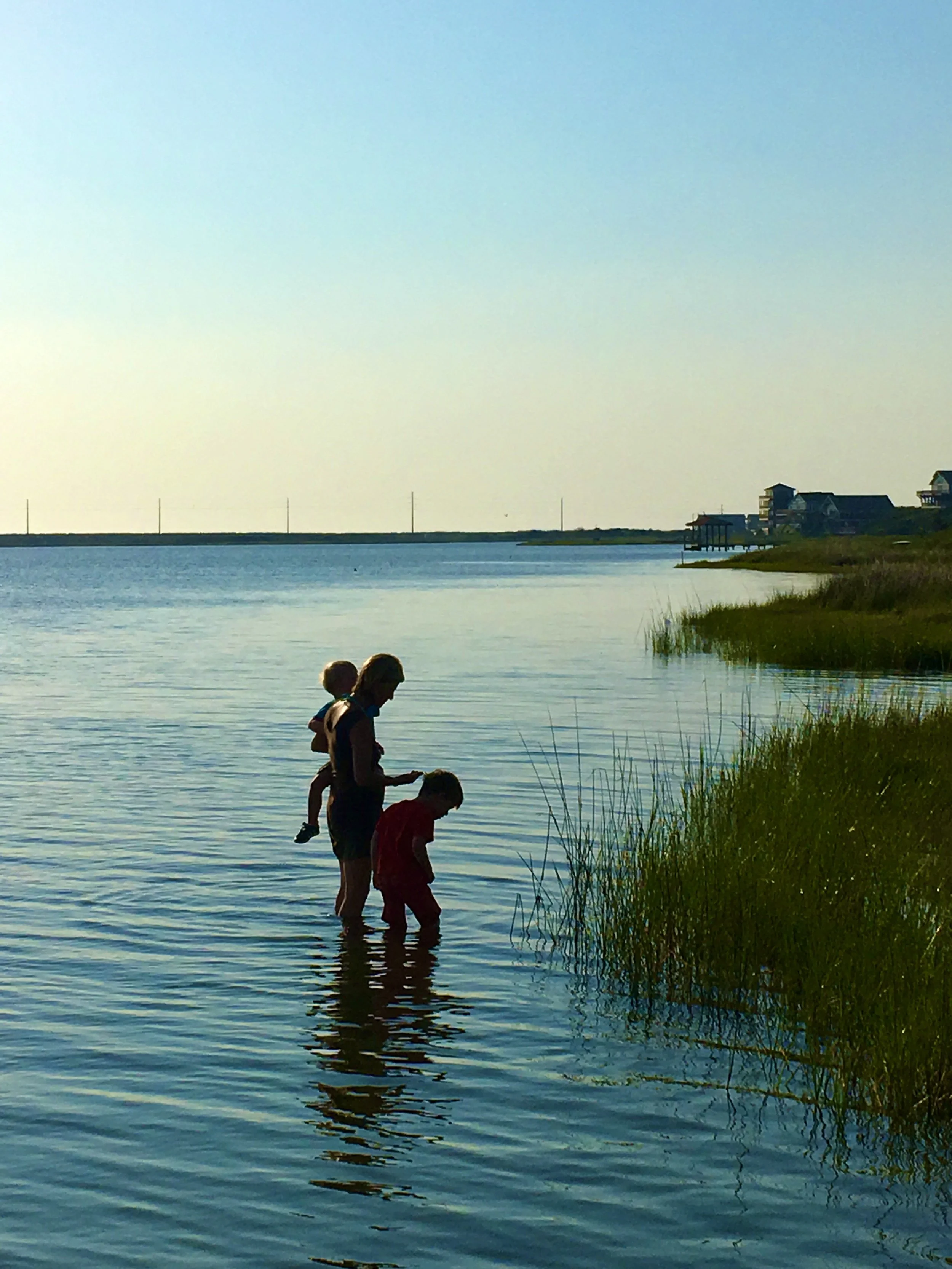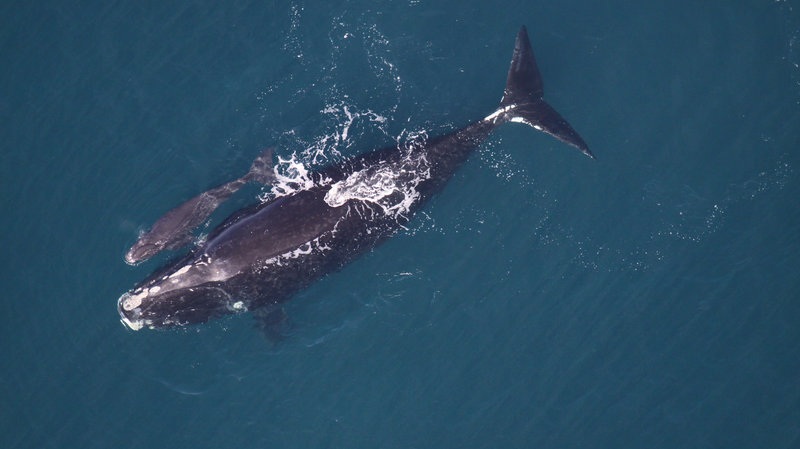“You cannot get through a single day without having an impact on the world around you. What you do makes a difference, and you have to decide what kind of difference you want to make.”
—Jane Goodall
BNEC is committed to ensuring a diverse and thriving Atlantic Ocean ecosystem—essential to a healthy planet and to the long-term sustainability of the communities and economies that depend on it.
Our ocean resources are not only vital to biodiversity—they are essential to human survival. Yet today, the Atlantic Ocean faces a growing list of threats: overfishing, the rise in endangered and threatened species, ocean and coastal pollution, habitat destruction, and the accelerating impacts of climate change. These pressures are pushing marine ecosystems to a breaking point, putting the health of the ocean—and our future—at serious risk.
Safeguarding Ocean Ecosystems
Photo credit - NOAA
Safeguarding Ocean Ecosystems
Oceans are the beating heart of our planet.
They cover about 71% of Earth’s surface, hold 97% of the planet’s water, and make up over 90% of the Earth’s habitable space. Oceans are home to more than 80% of all life on Earth, supporting a dazzling array of biodiversity from microscopic plankton to massive whales.
Oceans Are Our Life Support System
But oceans aren’t just vital for nature—they’re essential to human survival and well-being. They produce 50% of the oxygen we breathe and absorb more than 30% of the carbon dioxide we generate. Globally, oceans provide "natural capital" valued at over $70 trillion annually. They contribute $2.3 trillion each year in goods and services and support the livelihoods of approximately 3 billion people. Marine fisheries alone employ around 57 million people.
Overfishing: A Leading Threat to Ocean Health
Despite their immense value, ocean ecosystems are under intense pressure. Among the greatest threats is overfishing—the unsustainable harvesting of fish faster than populations can recover. Unchecked, overfishing undermines marine biodiversity, destabilizes ecosystems, and threatens global food security.
Why an Ecosystem Approach to Fisheries Management Matters
To protect our oceans, we must rethink how we manage fisheries. Traditional approaches that focus on individual species in isolation are no longer enough. Instead, we must adopt ecosystem aproaches fisheries management (EAFM)—a holistic strategy that considers the role of individual fish species in the ocean food web, interactions with other fisheries, natural mortality from predators, and long-term sustainability and reproductive health of fish populations
This approach ensures we leave enough fish in the ocean to maintain ecosystem balance, support biodiversity, and sustain future harvests.
The Importance of Forage Fish
Forage species—small, schooling fish like herring, mackerel, and menhaden—are critical to the marine food chain. They feed larger predators like tuna, seabirds, whales, and dolphins. These species are often targeted by industrial midwater trawlers, which can capture several tons of fish in a single haul.
Mismanaging forage fish has ripple effects throughout the ecosystem. Their careful conservation is essential to maintaining predator populations, supporting commercial and recreational fisheries, and ensuring ecosystem resilience
What BNEC Is Doing
At BNEC, we work to ensure the long-term sustainability of ocean ecosystems. We do this by advocating for ecosystem-based fisheries management, protecting forage fish as foundational species in the marine food web, and conserving essential fish habitats that support breeding, feeding, and nursery grounds. Our efforts help secure thriving oceans, sustainable fisheries, and a livable planet.
Preventing Overfishing
Industrial trawler - Photo Credit
Preventing Overfishing
Overfishing is one of the most serious threats facing our oceans today. It’s a global—and national—crisis that not only disrupts marine ecosystems but also jeopardizes a vital food source for millions of people around the world.As Earth’s population grows—from 8 billion today to nearly 10 billion by 2050—our dependence on healthy ocean ecosystems will only intensify.
Coastal Communities Depend on Sustainable Fisheries
Healthy, well-managed fisheries are essential for food security, marine biodiversity, and climate resilience. Healthy oceans also power local economies. Coastal communities rely on vibrant marine life to support tourism and hospitality, restaurants and seafood markets, recreational and commercial fishing, and shipbuilding, processing, and supply chains. Without sustainable fish populations, these industries—and the communities behind them—face an uncertain future.
The Growing Impact of Overfishing
Since 1970, the number of overfished global fish stocks has tripled. Rapid advances in fishing technology have made it easier to locate and catch fish at unsustainable levels. Echo-sounders, GPS, and fishfinders allow for precise targeting, modern vessels are larger, faster, and stay at sea longer, and onboard processing and refrigeration enable massive catches in a single trip.
The Problem of Bycatch
Bycatch—the accidental capture of non-target species—has serious ecological consequences. It contributes to the depletion of non-target species, undermines rebuilding efforts for struggling fish populations, and removes juvenile fish before they can reproduce—reducing future spawning potential and accelerating population declines.
What BNEC is doing
At BNEC, we work to prevent overfishing by advocating for sustainable catch limits, promoting science-based fisheries management. We use law and policy to hold managers accountable. Our goal is to protect marine ecosystems while supporting communities that rely on them.
Protecting Threatened Marine Species
Photo credit - NOAA
Protecting Threatened Marine Species
According to the IUCN Red List, 12% of all assessed marine species are currently at risk of extinction. Over 150 marine species are listed as threatened or endangered under the U.S. Endangered Species Act. However, these numbers only reflect a tiny fraction of the ocean’s biodiversity—just 3% of the estimated 250,000 known marine species have been assessed to date. With an estimated 1.7 million marine species still undiscovered, the true number of species at risk is likely far greater. Among currently assessed species, 26% of all marine mammals, 37% of sharks, and 44% of coral species worldwide are classified as threatened.
A Stark Example: The North Atlantic Right Whale
One of the most pressing symbols of this crisis is the North Atlantic right whale (NARW). Fewer than 370 individualsremain—including only about 70 breeding females—making it one of the most endangered marine mammals on the planet.
The greatest threats to the NARW are entanglement in fishing gear and ship strikes. These whales also depend on acoustic communication between mothers and calves, which is disrupted by persistent underwater noise pollution from shipping and seismic exploration.
With these risks ongoing and largely unresolved, it is tragically possible that the NARW could go extinct within our lifetime.
What BNEC Is doing
At BNEC, we work to strengthen protections for the NARW and other endangered marine species by targeting the human-driven threats putting them at risk. Protecting vulnerable marine species requires a combination of science-based management, regulatory enforcement, and industry innovation. Our goal is to protect biodiversity and the balance of the ocean ecosystem.








